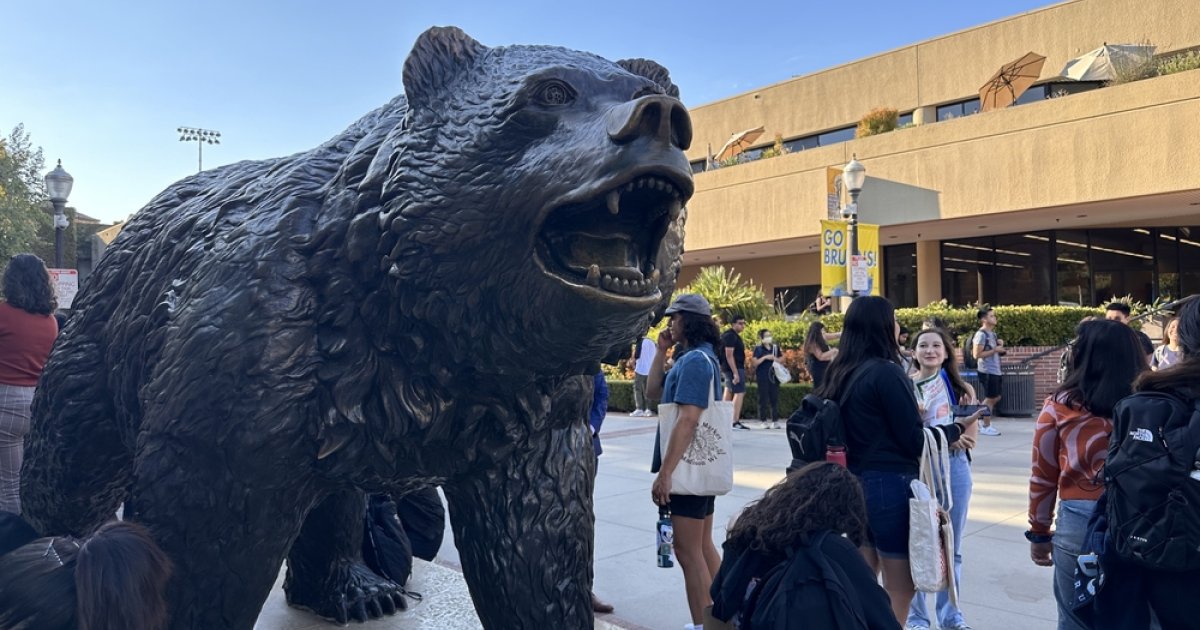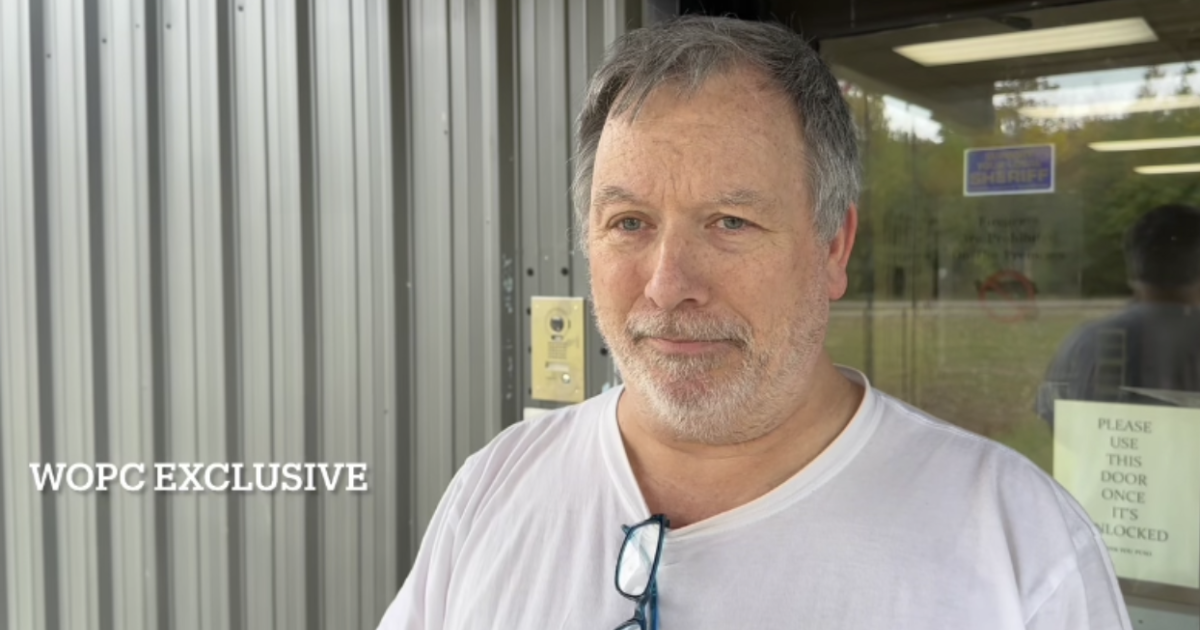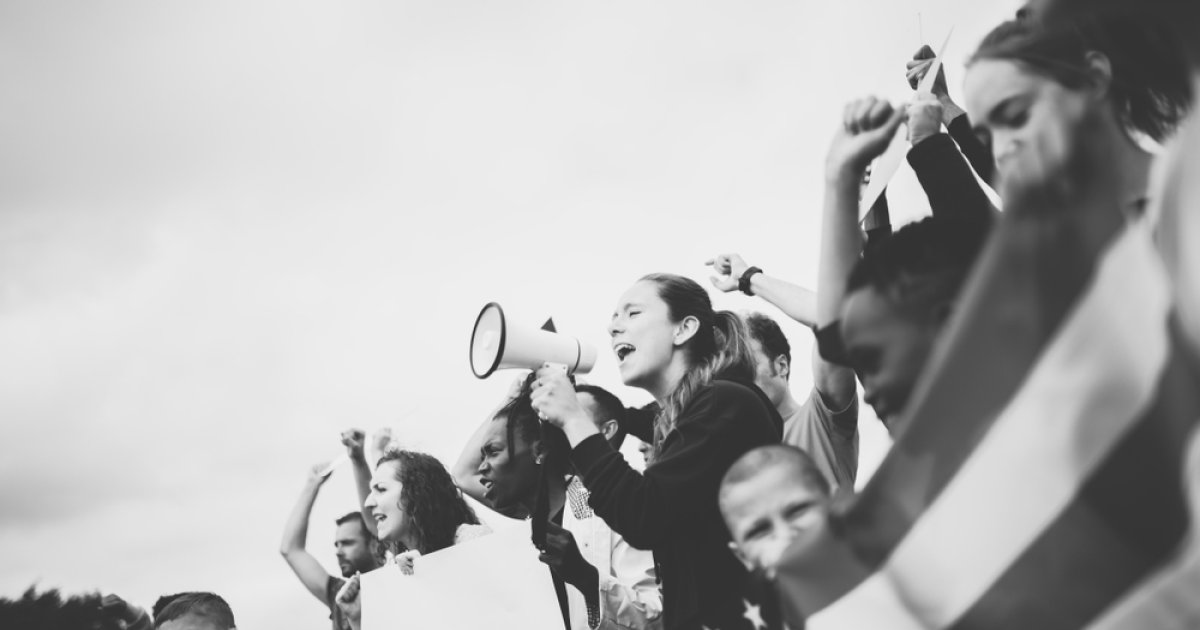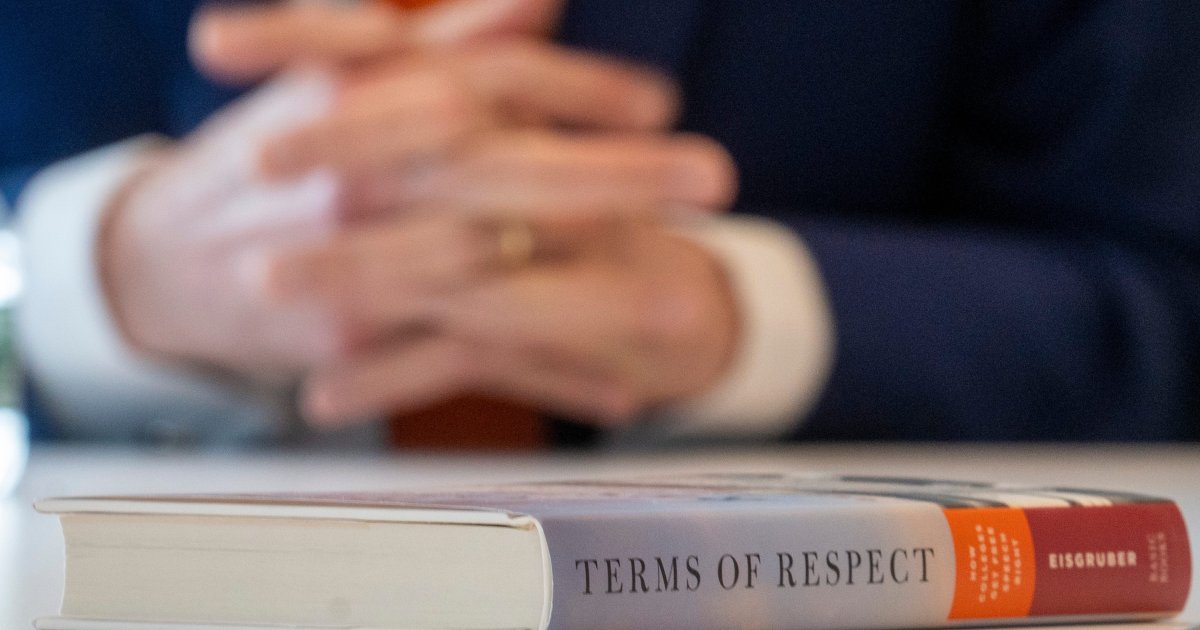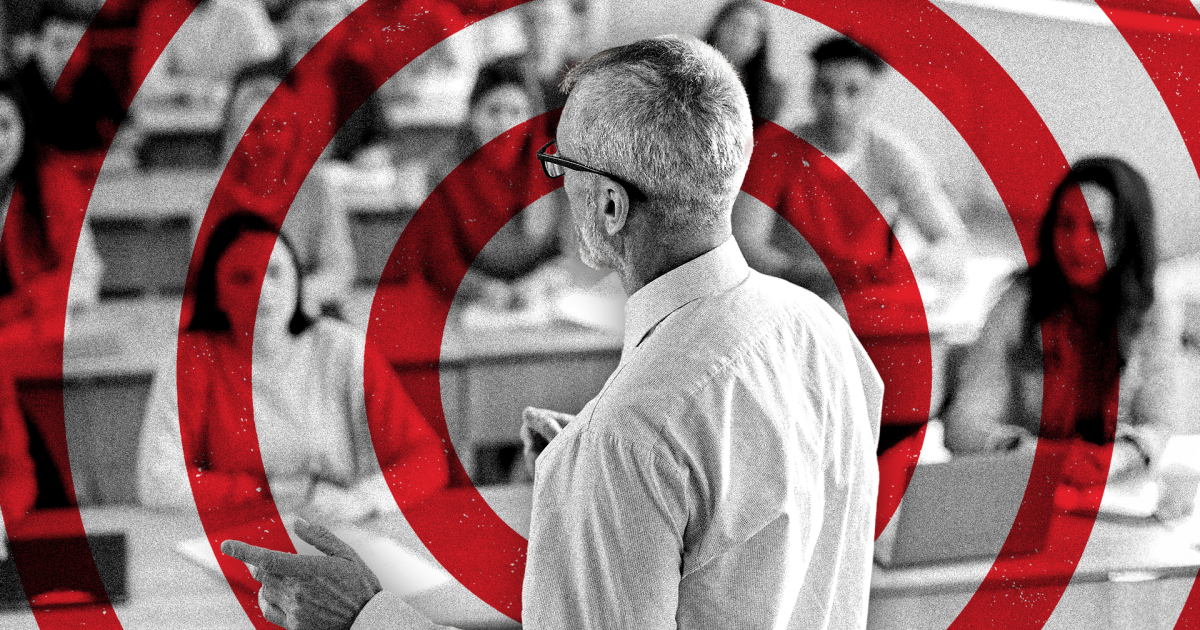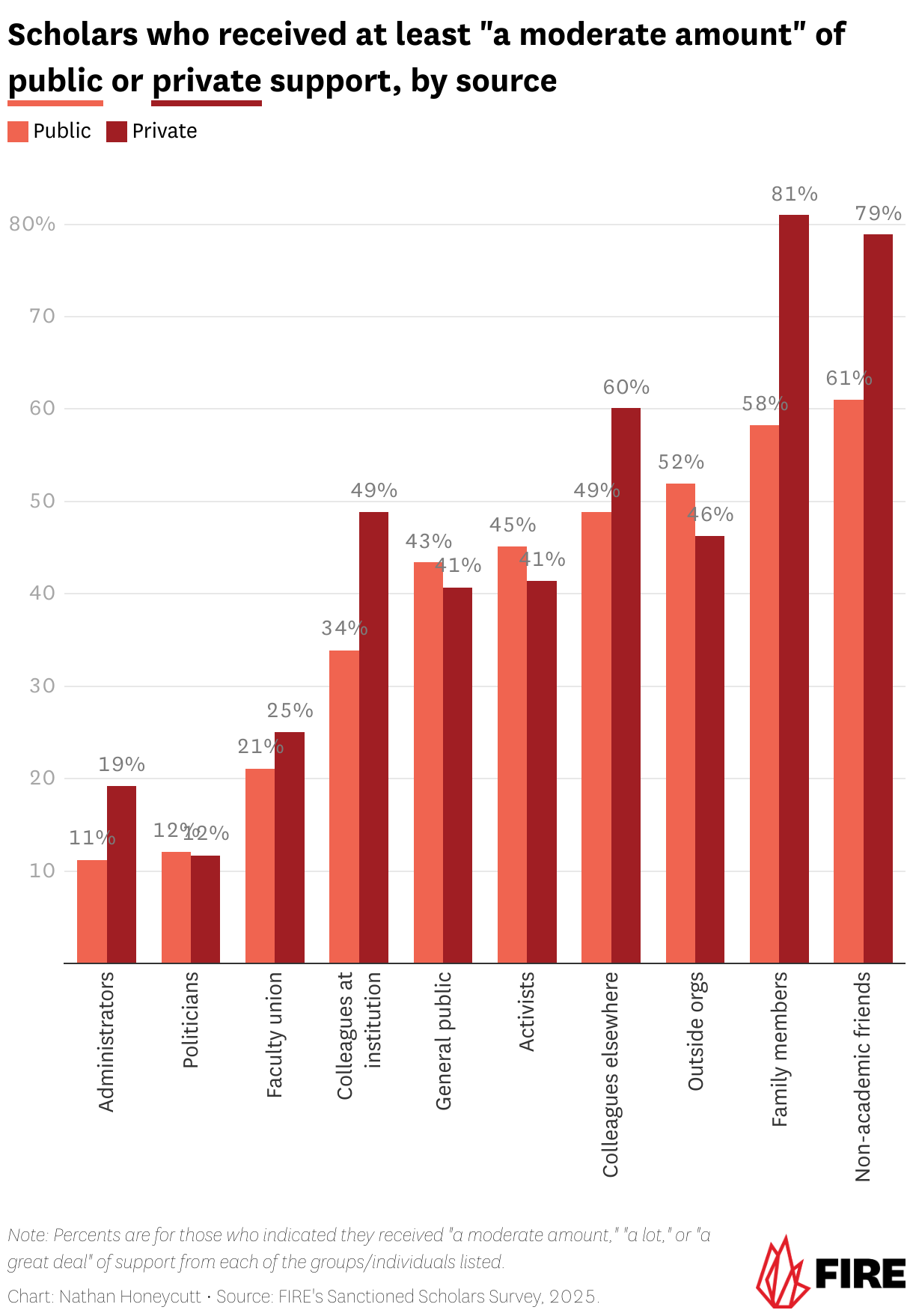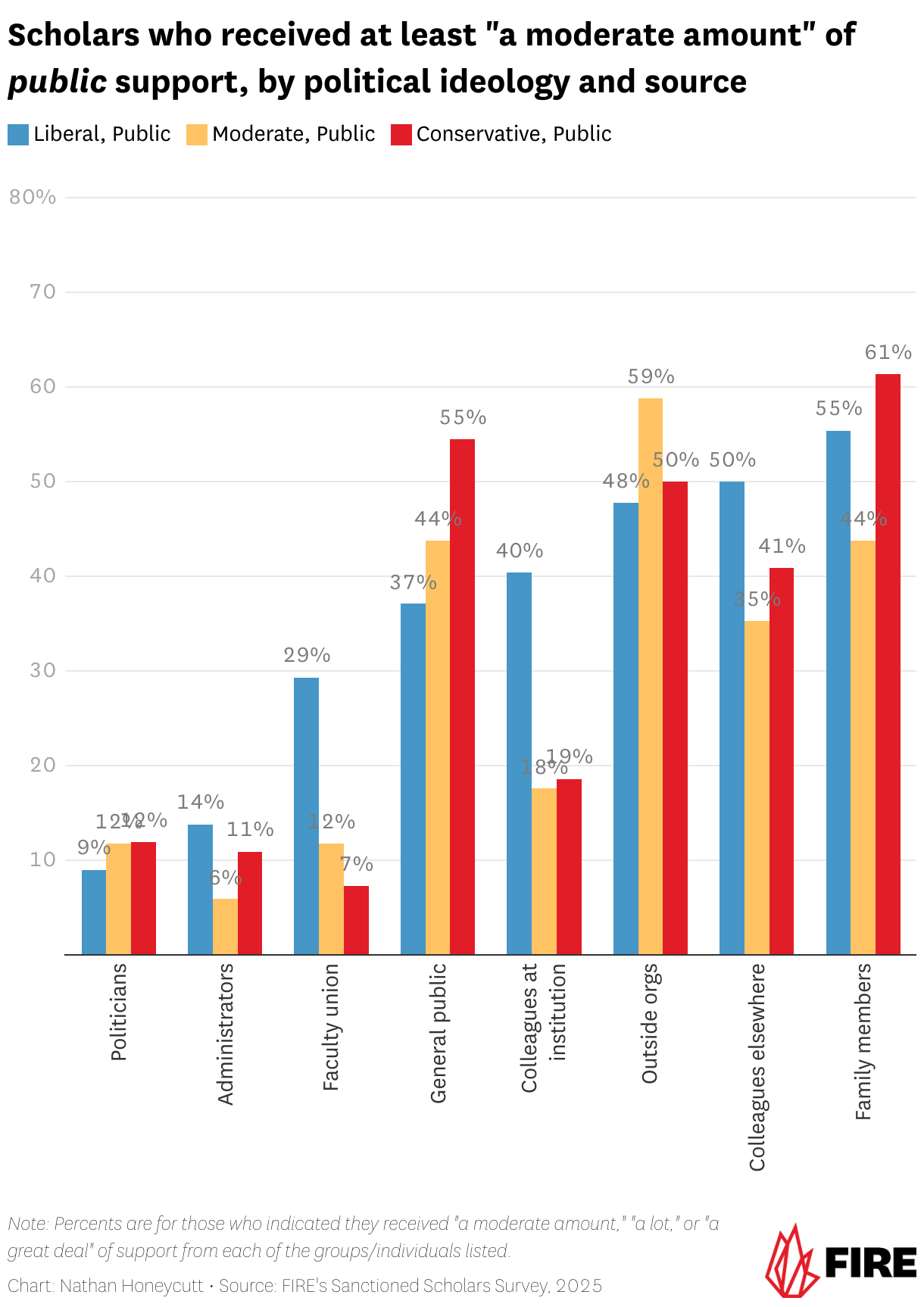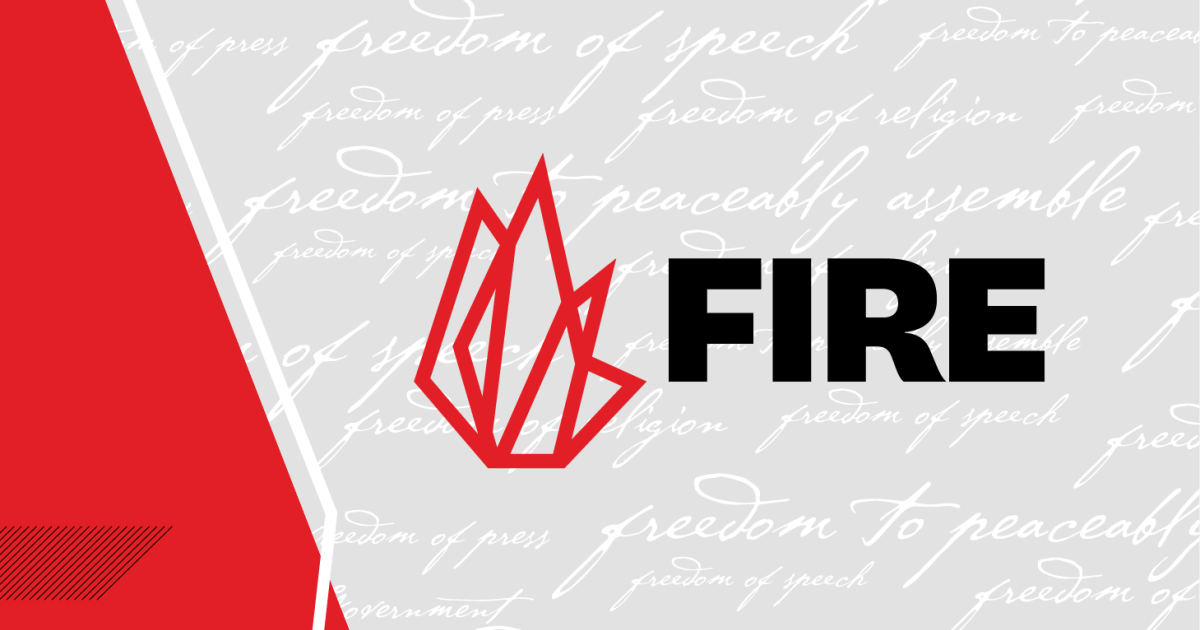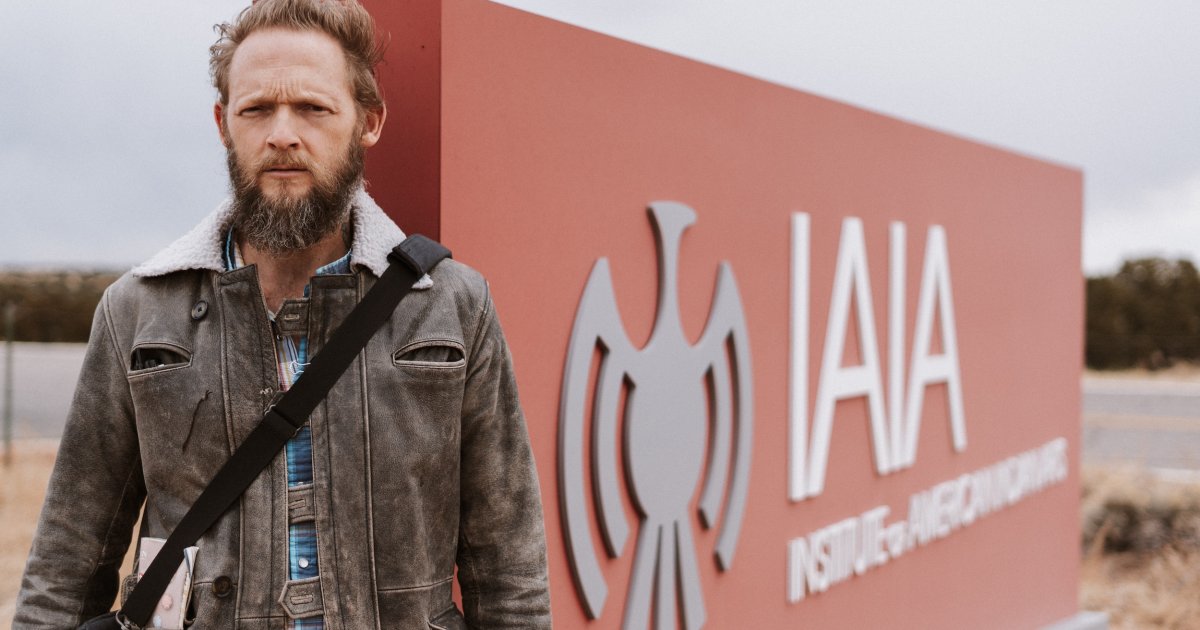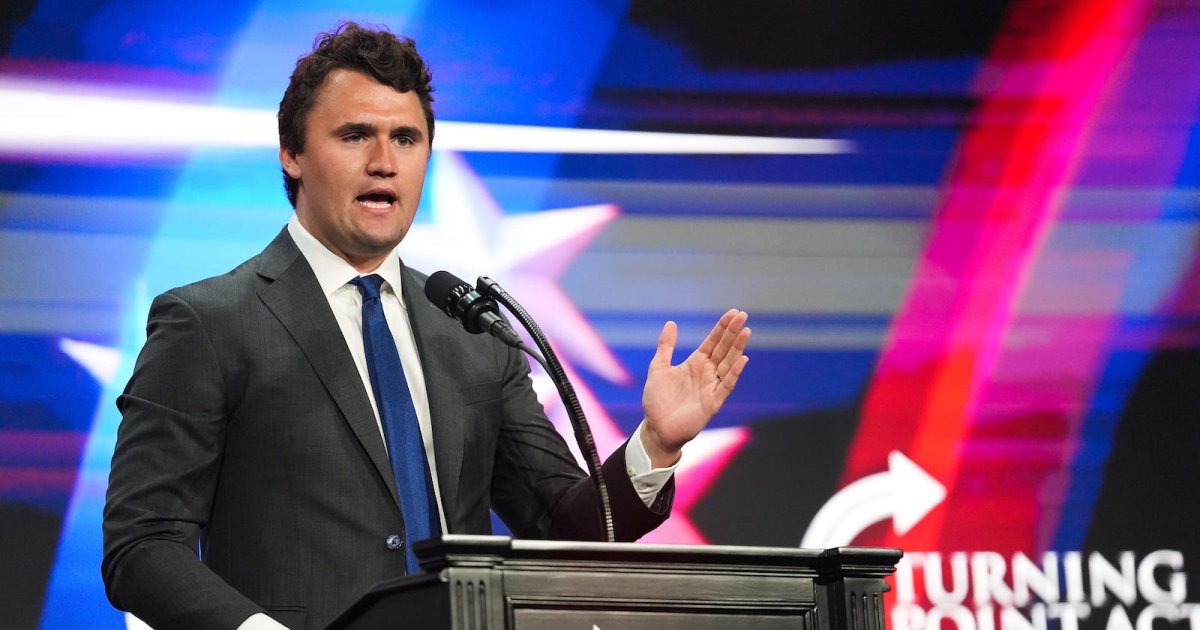The first step to solving a problem is admitting you have one. In his new book Terms of Respect: How Colleges Get Free Speech Right, Princeton University President Christopher L. Eisgruber reports on FIRE’s data on free speech and First Amendment norms on campus while making no effort to understand it and misusing the data of others. In other words, he’s skipped that first step — and now Princeton is tumbling down the staircase.
Eisgruber’s book makes many questionable claims, from dismissing good-faith critiques to muddying examples of censorship. But for our purposes here, let’s cabin our criticism to the nine pages of Chapter 5 that he devotes to dismissing data, including FIRE’s.
Our research
FIRE’s research — like all research — is imperfect, and we welcome criticism. Research isn’t about proving you’re right. It’s about stress-testing ideas to see what holds up. Scrutiny is how the process works, and it’s how the work gets better.
Our largest and most ambitious annual research project is the College Free Speech Rankings, which combines three factors: written speech policies, a national survey of student views on campus free expression, and outcomes from campus speech controversies. Reasonable minds can differ on how to weigh these factors, which is why we make all our data available to anyone who requests it. If someone believes these factors should be weighed differently, or has different factors they would like to include, they are welcome to do so, and to use our data.
College Free Speech Rankings
The College Free Speech Rankings is a comprehensive comparison of the student experience of free speech on their campuses.
Read More
We’re also transparent about our methodology. This year, we preregistered our methodology before our survey data came back, in part to make clear that we do not — and cannot — reverse-engineer outcomes to put certain schools on top or bottom.
Every year when we release the report, we get feedback. We take the thoughtful critiques seriously and have often used them to improve our work. Again, feedback is part of the process. But not all feedback comes from a place of good faith.
Bias or projection?
Eisgruber introduces FIRE in a manner intended to discredit us, but that probably ends up saying more about his biases than any of ours:
An organization called FIRE (the Foundation for Individual Rights and Expression) has probably done as much as any other entity to create the impression that free speech is under continuous assault on college campuses. FIRE is a nonprofit advocacy organization that describes itself as defending free speech and free thought for all Americans; it was founded in 1999 with a focus on campus speech issues and now receives a substantial portion of its funding from foundations often associated with conservative political causes.
Eisgruber provides no footnote explaining or citing the conservative foundations to which he objects, when the “now” period started, or how “substantial” are those alleged funds. In reality, FIRE is funded by a very politically diverse cohort, and in the last fiscal year, 74% of our funding came from individual donors compared to 26% from foundation grants.
Eisgruber’s implication is that FIRE is biased towards conservatives because we have conservative donors. (So does Princeton, and few would accuse it of being politically conservative.) He has to rely on these vague implications because if you look at the evidence, you have to contend with FIRE’s many cases on behalf of liberal students and professors. Or our lawsuit against the Trump administration. Or against the governments of Texas and Florida, in which we succeeded in blocking speech restrictions passed by deep-red legislatures.
If he actually had any evidence that donors were influencing our research or casework, he’d have shown it. And with regard to our research, if the methodology and procedures are solid, it wouldn’t even matter if we were conservative, liberal, or from another planet entirely. If someone you hate tells you the sky is blue, the fact that you don’t like them is irrelevant to the truth or falsity of their statements. So he’s just tossing out the accusation and hoping that’s enough to bias his audience against us in the section that follows.
Eisgruber then brings up FIRE’s supposed bias to praise another group’s research in a similar vein about free expression in the University of North Carolina system (more on that later):
Unlike at FIRE and its kin, the researchers brought no discernible ideological or advocacy agenda to their work: The three original collaborators on the project included one self-identified conservative (McNeilly) and one self-identified liberal (Larson).
If he had bothered to fact-check this claim by contacting FIRE, he would have found that our research department and those of us who work on the rankings share at least that level of political diversity (as does FIRE as a whole)! As for their indiscernible advocacy agenda, he may have missed their excellent recommendations for free expression:
In sum, we recommend that efforts to improve the campus culture for free expression and constructive dialogue be holistic and attentive to the diverse contexts in which students encounter politics. Tangibly, we suggest that the UNC system encourage researchers from member institutions to review these data, conduct their own analyses, and develop campus-specific plans for creating and evaluating their own interventions.
As agendas go, that’s a praiseworthy one to have, but it is an agenda.
But while Eisgruber is quick to baselessly accuse FIRE of bias, in all his discussion of our findings, he never once pauses to consider his own biases. His defense of the status quo for free speech on campus is, not coincidentally, a defense of his own record as president. That’s a pretty big blind spot, and it shows. Even worse, his desire to justify himself leads to some exceptionally lazy takes on our research.
When ‘it’s not clear’ really means ‘I didn’t bother to look into it’
Eisgruber takes issue with the methodology of FIRE’s Campus Deplatforming Database. He notes that before 2024, it was called the Disinvitation Database, and adds a footnote: “It is not clear what changed when the database expanded.” That’s not even close to correct, as we published a complete explanation about the changes on Feb. 8, 2024. It would be absurd for us to completely overhaul the methodology and purpose of our database without explaining those changes somewhere. That’s why we did explain it. He could have found this out with a simple Google search.
One might be forgiven for missing this kind of mistake when writing a critique on X. It’s less excusable in the context of a book, for which he presumably had research assistance and certainly had an editor. (Or did he? Curiously, the same footnote also says that the database was “accessed November 17, 2025,” which, at the time of this writing, has not yet occurred.)
As for the substance of his critique, Eisgruber calls the database a “hot mess,” claiming our inclusion criteria are too broad and that we “[conflate] disinvitation with deplatforming and censorship.” He never defines these terms, so it’s hard to know what distinction he thinks we missed. His example? He cites as “absurd” our decision to classify as a disinvitation attempt a situation in which NYU students tried to replace their commencement speaker, former Princeton President Shirley Tilghman, with someone more famous, followed by several similar efforts at Princeton.
Reasonable minds can disagree on what such episodes mean, but by our stated methodology, they clearly count as deplatforming attempts:
A deplatforming attempt . . . is an attempt to prevent someone from expressing themselves in a public forum on campus. Deplatforming attempts include attempts to disinvite speakers from campus speeches or commencement ceremonies.
That definition is public and consistent. It doesn’t depend on some subjective criterion for how “bad” we or Eisgruber think an incident was, or how justified students felt in opposing it. If Eisgruber wants to challenge our data, he could propose his own definition and see what share of our dataset fits it. Instead, he cherry-picks anecdotes he happens not to care about, and conveniently ignores more egregious examples.
He also objects to the idea that disinvitations — even successful ones — can threaten free speech, arguing that FIRE “confuses the exercise of free speech with threats to free speech.” But that’s a false dichotomy. The exercise of free speech can absolutely threaten others’ ability to speak.
As FIRE has noted on many occasions, calls for disinvitation are themselves protected speech — so are calls for violence in response to speech that don’t meet the bar for incitement.
Eisgruber agrees with FIRE that shoutdowns are never acceptable and are incompatible with free speech. But it’s hard to reconcile that with his position that disinvitation attempts can never threaten free speech. They often involve appeals to university authorities to shut down an event or speech. In other words, they are attempts by one group of people to decide for their peers what speech their peers will be able to hear, similar to a heckler’s veto.
Eisgruber also presents a heckler’s veto from 1970 that doesn’t appear in our database, as if to prove that campus illiberalism didn’t start with Gen Z. Believe me, we’re aware. We’ve written plenty about McCarthy-era censorship and the Red Scare. Plus, FIRE was founded back in 1999, long before today’s version of the culture wars. Illiberalism on campus isn’t new, and we certainly wouldn’t argue that it is new after 25 years of fighting it. It just takes different forms in different eras — and we track it wherever it appears. The reason Eisgruber’s example wasn’t included in our database is simply that we made the decision to limit the database to incidents that occurred since FIRE’s founding.
REPORT: Faculty members more likely to self-censor today than during McCarthy era
Today, one in four faculty say they’re very or extremely likely to self-censor in academic publications, and over one in three do so during interviews or lectures — more than during and Second Red Scare and McCarthyism.
Read More
He praises Princeton for not having given in to a heckler’s veto since then: “Hickel got shouted down not by Gen Z but by members of an older generation that now criticizes young people for failing to respect free speech. Princeton students allowed every speaker in the next half century to have their say.” Unfortunately, this may have jinxed Princeton, as, apparently after Eisgruber’s manuscript was finalized, two speaking events at Princeton were disrupted.
Survey critiques suggest he didn’t read our survey
Eisgruber next tries to argue that concerns about self-censorship are overblown. He starts reasonably enough, noting that survey data can be tricky:
Polling data is, however, notoriously sensitive to sampling biases and small differences in the formulation of questions. Data about concepts such as free speech requires careful interpretation that it rarely gets.
We agree! But then he cites FIRE’s 2021 finding that over 80% of college students self-censor at least sometimes, and 21% do so often, only to dismiss it: “Should we worry about these numbers? Not without more evidence and better poll questions.”
What’s wrong with the poll question? He never says. He just moves on to talk about other surveys. So let’s stay on this one. What does he think about self-censorship? Well, as he defines it, he actually thinks it’s good:
Indeed, I am most concerned about the substantial fraction of people who say they never self-censor. Do they really say everything that pops into their heads? . . . Of course people self-censor! Politeness, tact, and civility require it. And as we become more aware of the sensibilities of the diverse people around us, we may realize that we need to self-censor more often or differently than we did before.
Do students share his conception of self-censorship as politeness or conscientious refusal to offend? Here’s how we have asked that question for the past four years:
This next series of questions asks you about self-censorship in different settings. For the purpose of these questions, self-censorship is defined as follows: Refraining from sharing certain views because you fear social (exclusion from social events), professional (losing job or promotion), legal (prosecution or fine), or violent (assault) consequences, whether in person or remotely (by phone or online), and whether the consequences come from state or non-state sources.
Q: How often do you self-censor during conversations with other students on campus?
Q: How often do you self-censor during conversations with your professors?
Q: How often do you self-censor during classroom discussions?
-
Never
- Rarely
- Occasionally, once or twice a month
- Fairly often, a couple times a week
- Very often, nearly every day
As you can see, this isn’t asking about garden-variety tact or politeness. To be fair to Eisgruber, we didn’t provide this definition when we asked the question in 2021 (though he should have sought the most recent data; that he did not is itself strange). Unfortunately for him, since adding this clarifying definition, the portion of students who self-censor at least rarely has increased to 91-93%, depending on the context, and those reporting that they often self-censor now stand at 24-28%.
In other words, a quarter of university students in America regularly silence themselves out of fear of social, professional, legal, or violent consequences. As for his request for “more evidence,” the responses are dire year after year. Maybe Eisgruber still thinks that’s fine, but we don’t.
Support for violence and shoutdowns is worse than he admits
Eisgruber also downplays how many students think it’s acceptable to use violence or shoutdowns to silence speakers, and tries to hand-wave away data in an explanation that utterly mangles First Amendment law:
One explanation highlights ambiguities in the survey questions. For example, American free speech law agrees with students who say that it is “rarely” or “sometimes” acceptable to stop people from talking. Not all speech is protected. If, for example, speakers are about to shout “fire” falsely in a crowded theater, or if they are preparing to incite imminent violence, you may and should do what you can to (in the words of the poll question) “prevent them from talking.”
We would be remiss to pass up an opportunity to once again address the immortal, zombie claim that you can’t shout “fire” in a crowded theater. Eisgruber did better than many others by including “falsely,” but it’s still incomplete and misleading (did a panic occur? Was it likely or intended? These questions matter) and has been for a very long time. It’s dispiriting to see it come from the president of an Ivy League university — one who has a law degree, no less. But also, the fact that you as a listener think someone might be about to engage in unprotected speech doesn’t mean you should dole out vigilante justice to prevent it. If you do, you’ll probably go to jail.
Different wording, same story: growing student support for violence and shoutdowns shows campus free speech is in danger.
But leaving that aside, what of his contention that the high levels of support are just an artifact of the “prevent them from talking” wording? Well, here’s the wording of our latest poll question on that subject:
How acceptable would you say it is for students to engage in the following actions to protest a campus speaker?
Q: Shouting down a speaker to prevent them from speaking on campus.
Q: Blocking other students from attending a campus speech.
Q: Using violence to stop a campus speech.
- Always acceptable
- Sometimes acceptable
- Rarely acceptable
- Never acceptable
With this different wording, we find 71% at least “rarely” accept shoutdowns, 54% at least “rarely” support blocking, and 34% at least “rarely” support violence. Different wording, same story: growing student support for violence and shoutdowns shows campus free speech is in danger.
It’s important to note that Eisgruber offers only quibbles with question wording, and offers theories for how students may be interpreting questions. He doesn’t offer competing data. While that might be understandable for the typical social media critic, if all this could be debunked by “better poll questions,” no one is in a better position to commission said research (at least on his or her campus) than the president of a university. Instead of offering unconvincing dismissals of existing data, he could have contributed to the body of knowledge with his “better” questions. We still encourage him to do so. Seriously. Please run a free speech survey at Princeton.
As much as FIRE or Eisgruber may wish these poll numbers were different, we need to deal with the world as it is.
Refuting FIRE data with . . . data that agree with FIRE’s data
So what data does Eisgruber use to support his case that the situation on campus is rosier than FIRE’s data suggests? As mentioned earlier, he turns to a study of the UNC system called “Free Expression and Constructive Dialogue in the University of North Carolina.” We were darkly amused by this because FIRE Chief Research Advisor Sean Stevens, who heads up our College Free Speech Rankings survey, was approached by that study’s authors based on his work on surveys for FIRE and Heterodox Academy — and they consulted with Stevens about what questions to include in their survey. Here’s Eisgruber:
I believe, however, that the analysis by Ryan, Engelhardt, Larson, and McNeilly accurately describes most colleges and universities. Certainly it chimes with my own experiences at Princeton.
This could be in a textbook next to “confirmation bias.” The data that jibes with his experience he sees as more trustworthy. Yet this survey does not refute FIRE’s findings, but is perfectly compatible with them. The rosy finding upon which Eisgruber puts a lot of weight is their finding that faculty do not push political agendas in class. This isn’t an area that FIRE studies, so it’s not a refutation of our work. More importantly, it’s not asking the same question.
Eisgruber goes on:
There is another reason why the North Carolina study’s conclusions are plausible. They mesh with and reflect broader, well-documented trends in American political life. A mountain of evidence shows that over the past several decades, and especially in the twenty-first century, political identities have hardened.
But FIRE’s data is also perfectly compatible with the idea of increasing polarization. It’s hard, therefore, even to find the disagreement to which he’s pointing when he says their data is good and our data is bad.
The UNC survey, like ours, found “campuses do not consistently achieve an atmosphere that promotes free expression” and “students who identify as conservative face distinctive challenges.” This is fully compatible with our data. It’s not clear where Eisgruber finds meaningful disagreement, and to the extent he frames this data as hopeful, it seems to misinterpret the authors’ findings.
Even if the data coming out of UNC schools were wildly different from our national-level data, it would be a mistake to take it as representative of the nation as a whole. The mistake, specifically, would be cherry-picking. Six of the seven UNC schools that we rank are in the top 20 of our College Free Speech Rankings. The most amusing part, from a FIRE perspective, is that this is not a coincidence. Those six each worked with FIRE’s policy reform team and achieved our highest “green light” rating for free speech, and have implemented programming to support free expression on campus. Indeed, since the early days of FIRE’s speech code ratings, FIRE has made a special effort to evaluate the speech codes of all of the UNC System schools, even the smaller ones, thanks to a partnership with the state’s James G. Martin Center for Academic Renewal (then called the Pope Center). So if UNC campuses are far more likely to have a “green light” than the rest of the nation, that’s in significant part because of FIRE’s ongoing work. Princeton, in comparison, receives FIRE’s lowest “red light” rating.
If anything, the UNC schools provide evidence that the way to improve free speech on campus is to address it head-on, rather than grasp about for some explanation to justify the current state of affairs. Speaking of which:
Don’t be like Eisgruber — real leaders listen
In the process of writing this piece, we received word of a very different response to FIRE data from administrators at Wellesley College:
“Both FIRE stats and our own research, in some ways, have been similar,” said [Wellesley Vice President of Communications and Public Affairs Tara] Murphy. “We are taking this seriously.”
In November [2024], Wellesley commissioned Grand River Solutions to conduct a survey on civil discourse among students. Out of 2,281 students invited to participate, 668 responded to at least one of the three questions, yielding a 29% response rate. The data was similar to the FIRE report: 36.8% of respondents said they felt either “very reluctant or somewhat reluctant” to share their views on controversial topics in the classroom, and 30% felt similarly hesitant outside of class.
That’s the kind of response we hope for. If campuses aren’t sure that FIRE has it right, they should be getting their own data so that they can address any campus free speech problems that the data may bear out.
We’re happy to report that in that sense FIRE’s rankings have been extremely successful. Many schools have reached out and worked with us to improve their policies and begin to implement programming to support free speech on campus. As dire as some of the stats can appear to be, FIRE has seen green shoots in the form of faculty and administrators who recognize the problem and want to do something about it.
Our research deserves, and has, more thoughtful critics. Princeton’s community deserves a president who is more curious about what’s happening on his campus, and serious about improving the environment for free speech. Maybe it’s a coincidence that the academic experience that ultimately led Alan Charles Kors and Harvey Silverglate to found FIRE began when they met during their freshman year at … Princeton University. Or maybe it’s not.
If finding out ever becomes a priority for Eisgruber, we’d be happy to help.

